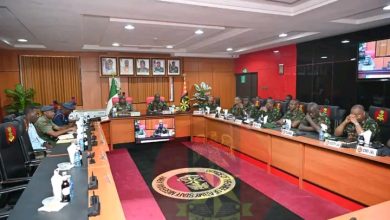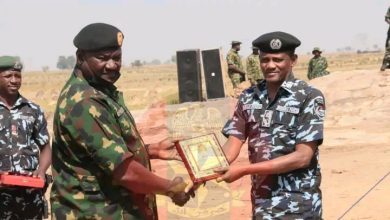Senate Declares Kidnapping, Banditry as Terrorism, Approves Death Penalty as Nigeria Confronts Escalating Insecurity

By Passman Akpos
The Nigerian Senate on Tuesday passed far-reaching resolutions aimed at combating the country’s worsening wave of kidnappings and bandit attacks, officially designating both crimes as acts of terrorism and approving the maximum death penalty for all kidnapping-related offences.
The decisions came after a heated debate during plenary, presided over by Senate President Godswill Akpabio, following a motion of urgent national importance moved by Senator Ashiru Oyelola Yisa (Kwara South) and further amended by Senate Leader Opeyemi Bamidele.
In what is now one of the Senate’s strongest security positions in recent years, lawmakers resolved that “all laws relating to kidnapping should be classified as terrorism and should have a maximum death penalty, and no judge should overturn or reduce the sentence without any option of fine.”
To enforce this position, Senate Leader Opeyemi Bamidele was directed to introduce a formal amendment bill “in the shortest possible time,” signalling an accelerated legislative push behind the tougher sanctions.
Major Security Measures Approved
Beyond the legal reclassification, the Senate approved the establishment of a new Joint Task Force (JTF) to improve security along the volatile Kwara–Kogi corridor. Lawmakers also endorsed the creation of Forward Operating Bases in Eruku, Babanla, Oke-Ero, Isanlu, and Wasagu in Kebbi State, zones that have witnessed repeated attacks in recent months.
In a controversial but significant recommendation, the Senate urged the Federal Government to consider reviewing Nigeria’s firearm laws to align with “over 175 countries where responsible citizens are permitted to own guns,” arguing that local vigilance units and rural communities need stronger self-defence capacity.
Orders Probe Into Troop Withdrawal Before Kebbi School Attack
One of the most striking moments of the session was the Senate’s directive for a full investigation into the withdrawal of military personnel from a school in Kebbi State hours before a violent bandit attack—a development many lawmakers described as “deeply suspicious” and “unacceptable.”
All security-related Senate committees were instructed to probe:
The withdrawal of troops from the Kebbi school before the attack
The controversial circular concerning the killing of Brigadier-General M. Uba in Maiduguri
Broader lapses in troop deployment and early-warning systems
The committees are to report back within two weeks.
Rising Violence Fuels Urgency
The Senate’s resolutions reflect mounting alarm as kidnappings, school raids and mass abductions continue to sweep across the country with devastating frequency.
SaharaReporters earlier detailed the grief and panic that gripped Eruku, a community in Kwara State’s Ekiti Local Government Area, after terrorists stormed a Christ Apostolic Church (CAC) branch, killing three worshippers and abducting several others, including the pastor. The attackers reportedly opened fire shortly after bursting into a church meeting, sending worshippers fleeing for safety.
Similarly, northern states such as Kebbi and Niger have witnessed multiple mass abductions this month alone, underscoring the depth of Nigeria’s security crisis.
As the Senate moves toward implementing these unprecedented measures, attention now shifts to how swiftly the proposed amendment bill will be introduced—and whether the new security posture will mark a turning point in Nigeria’s long struggle against kidnapping and terrorism.





